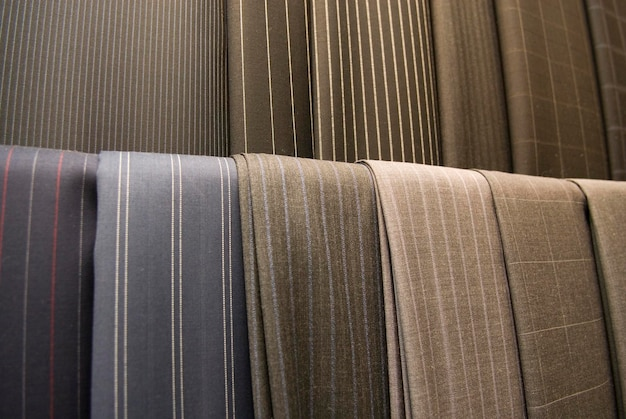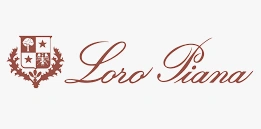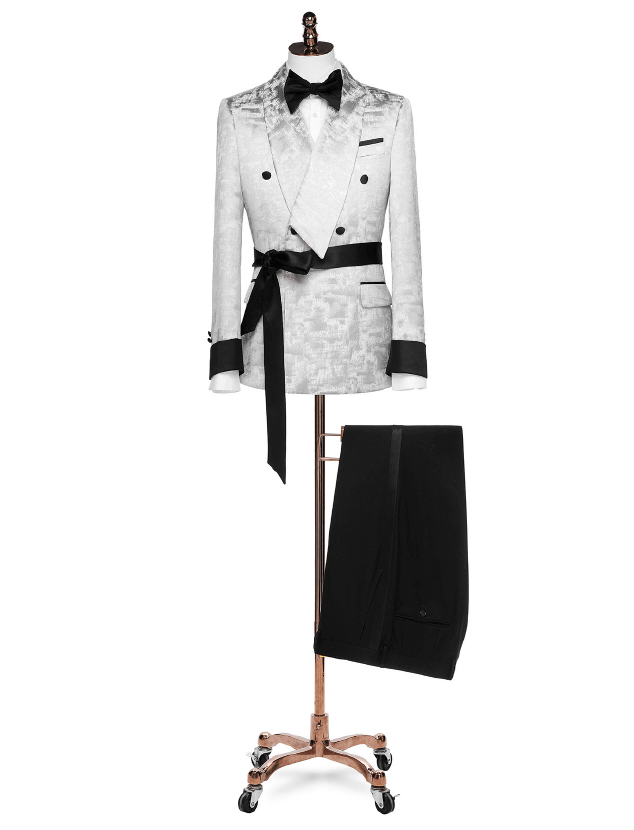
When it comes to high-end tailoring, there's little that rivals the quality and luxury of Italian suit fabrics. Italian fabric brands have made a name for themselves with their excellent craftsmanship, sumptuous textures, and attention to detail across the globe. Be it dressing up for a formal business occasion or in great style for a casual event, the right fabric can really make all the difference with your suit. In this guide, we will explore what core materials are used in Italian fabrics, highlight some of the best Italian fabric brands, and help you choose the best fabric for your needs.
Italian suit fabrics are synonymous with sophistication, quality, and timeless style. Italy boasts a rich history of textile production, and their suit fabrics are among the best in the world. Some reasons why Italian fabrics are in great demand include:
· Quality Craftsmanship: Italian mills have mastered the art of weaving and dyeing fabrics to perfection, with every bolt of cloth nothing but of the best quality.
· Luxurious Textures: Italian fabrics are known for their smooth feel and a soft, rich texture that assures comfort with good breathability.
· Tailoring Tradition: Italian suit fabrics are designed for tailored-fitting, therefore assuring a seamless and structured look enhancing the wearer's appearance.
· Variety: Italian fabric brands range from wool to linen, cashmere, and silk to suit all kinds of tastes and preferences.
Italian suit fabrics are made from an assortment of high-quality materials. Each of these fabrics contributes uniquely to the suit, thereby making it appropriate for various seasons, occasions, and personal preferences. Here is a general overview of core materials in Italian fabrics:
The basis of Italian suit fabrics is wool. Wool is versatile and light, yet warm; it breathes and it's durable. Of all types of wool, Merino is the most valued for its fine texture and smooth finish. Because wool suits can be worn in most weather conditions, they're always popular, from the business professional to the fashion-forward. For businesses seeking to create a custom formal wear line, wool can offer the ideal material.
For ultimate luxury, there is cashmere. It is finer and lighter than wool, thus offering an exceptional comfort and warmth. Because of its beautiful sheen and feel, Italian cashmere suits are often used on very high formal occasions.
Silk is another signature of Italian luxury. Less common for suits, as opposed to wool or cashmere, silk is often blended with other materials to add that touch of refinement and shine. It's especially popular for evening wear or special events, as it lends a subtle luster and sophistication. Many custom apparel manufacturers may use silk in evening collections for added elegance.
For a warmer climate or summer season, linen and cotton are a good option. Linen suits breathe well and are lightweight, therefore comfortable in hot weather conditions. Cotton is heavier compared to linen, yet more structured and comfortable to wear while remaining breathable. These fabrics are commonly used for casual or semi-formal suits, ideal for custom Smart Casual designs.
Italy is home to some of the best fabric mills in the world. Following are a few of the best known Italian brands that have set a benchmark in suit fabrics.

Loro Piana belongs to the most prestigious names in Italian fabrics. From luxurious wool to cashmere and silk blends, fabrics by Loro Piana are used by the best designers all over the world. The name is associated with sophistication, and often one sees it being used for high-end bespoke suits.
Ermenegildo Zegna is an Italian leading fabric manufacturer of premium wool fabrics. For over 100 years, Zegna has been producing some of the finest textiles, and their fabrics are highly regarded for durability, comfort, and luxurious finish. The company is known for pioneering innovative fabric technologies, such as their breathable wool that helps regulate body temperature. Zegna fabrics are a top choice for made-to measure-suits online due to their superior quality and precision.

Vitale Barberis Canonico was founded in 1663 and is considered to be one of the oldest fabric mills in Italy. This brand is highly regarded for manufacturing fine wool and wool-blend fabrics that have traditionally been used to create the finest classic and modern suits. Their textiles are utilized by a large number of the world's best tailors and are particularly prized for timeless style and quality.
The other two long-standing Italian fabric brands are Reda and Marzotto. Both these brands provide fabrics of wool and wool blend, while the former is renowned for merino wool and the latter is a lightweight and breathable linen or cotton. They offer numerous choices of various weights to fit all occasions in each season.
Choosing the right Italian suit fabric depends on several factors, such as climate, occasion, and personal preference. Here’s a guide to help you make the best decision:
If you live in a warm climate, consider lightweight fabrics like linen or cotton for summer months, or a breathable wool blend for year-round wear. In cooler climates, heavier wool fabrics or cashmere blends are perfect since they can be warm yet comfortable.
The weight of the fabric is really important, especially when picking out a suit. The lighter materials like lightweight wool or linen will suit warmer climates, while heavy wool or cashmere allows better insulation when it gets colder. Different textures within these fabrics further influence their external appearance, too: merino wool, a really smooth yarn, conveys a rather sleek, smooth look; tweed or flannel are coarser yarns, which makes them appear far more rugged in style, traditional even.
Consider whether you’re looking for a fabric that prioritizes durability or luxury. Luxury fabrics, like cashmere or silk blends, are softer and more comfortable but may require more careful maintenance. Durable fabrics, like high-quality wool, are resilient and long-lasting, making them ideal for everyday wear.

The prices of Italian suit fabrics can be very varied, depending on the material, brand, and quality. Here's a general idea of what one can expect from the different price ranges of Italian suit fabrics:
Entry-level Italian fabrics, including basic wool blends or mid-weight cotton, generally range between $100 and $300 per meter. These fabrics offer a good balance of quality and affordability, making them suitable for those who want a high-quality suit at a more accessible price.
Mid-range fabrics include fine merino wool and wool-silk blends. These usually cost between $300 and $600 a meter. They are great for durability, comfort, and style, which makes them popular among professionals and fashion-conscious people.
The more expensive luxury Italian fabrics-such as cashmere, silk blends, and high-quality wool-could be as much as $600 to $1,500 per meter or even more. Such fabrics are usually made into bespoke suits or high-end designer clothes that will grant the ultimate in comfort, refinement, and exclusivity.
Proper care will ensure your Italian suit fabrics remain in good condition and last longer:
Store your suits in a cool, dry place away from direct sunlight. Use a padded hanger to maintain the shape of the shoulders and avoid wrinkles. For wool suits, invest in garment bags to protect them from dust and dirt.
It’s best to dry clean your Italian suits occasionally, but avoid frequent cleaning to preserve the fabric’s integrity. Wool and cashmere fabrics can be gently brushed to remove dust, while linen and cotton may require more frequent washing. Always follow the care instructions provided by the fabric manufacturer to keep your suit looking pristine.
Wool generally comes highly recommended as one of the best fabrics to consider for an Italian suit since it's versatile, comfortable, and durable.
Prices for Italian suit fabrics go from $100 to $1,500 per meter, again depending on the type and brand.
Yes, wool is the most popular and widely used material for Italian suits, offering a perfect blend of comfort and luxury.
Some of the best Italian fabric brands for suits include Loro Piana, Ermenegildo Zegna, Vitale Barberis Canonico, Reda, and Marzotto.
Italian fabrics are usually softer and lighter, while the accent is on luxurious finishes; English fabrics are sturdy, heavier, and used for more structured classic suits.